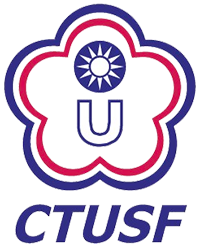Latest Articles
Author:Ming-Hui Hsieh; Yao-Yu Hsiao; Yi-Hsiang Chiu; San-Fu Kao
Period/Date/Page:Vol. 26 No. 1 (2024 / 03 / 31) , P41 - 54
DOI:10.5297/ser.202403_26(1).0003
Relationships Between Coaches' Paternalistic Leadership and Athletes' Secure and Anxious Attachment: Interaction Effect of Authoritarian, Benevolent, and Moral Leadership
Abstract:Paternalistic leadership theory assumes that leaders' role is perceived as a parental one by their followers. Attachment describes the individuals' feelings for parents' protection and caregiving. Based on the intense interaction between coaches and athletes, coaches' paternalistic leadership and athletes' attachment styles are important issues between coaches and athletes. This study aims to examine the relationships between coaches' paternalistic leadership and athletes' attachment styles using the paternalistic leadership theory and attachment theory as the theoretical framework. Specifically, the study investigates the interaction of three elements of paternalistic leadership (authoritarianism, benevolence, and moral character) with athletes' secure or anxious attachment. The participants comprised 279 high school athletes (202 males and 77 females). The study collected data on participants' perceptions of paternalistic leadership and attachment style. The results showed that benevolent and moral leadership positively predicted athletes' secure attachment, while authoritarian leadership positively predicted athletes' anxious attachment. Additionally, moral leadership negatively predicted athletes' anxious attachment. The interaction between benevolent and moral leadership significantly negatively affected anxious attachment. In conclusion, the three dimensions of paternalistic leadership individually influence athletes' secure and anxious attachment. A coach's benevolent and moral leadership contribute to athletes' sense of security, whereas authoritarian leadership heightens athletes' anxious feelings. Furthermore, a coach's benevolent and moral leadership can alleviate athletes' anxiety in their coach-athlete relationship. (Full text)




